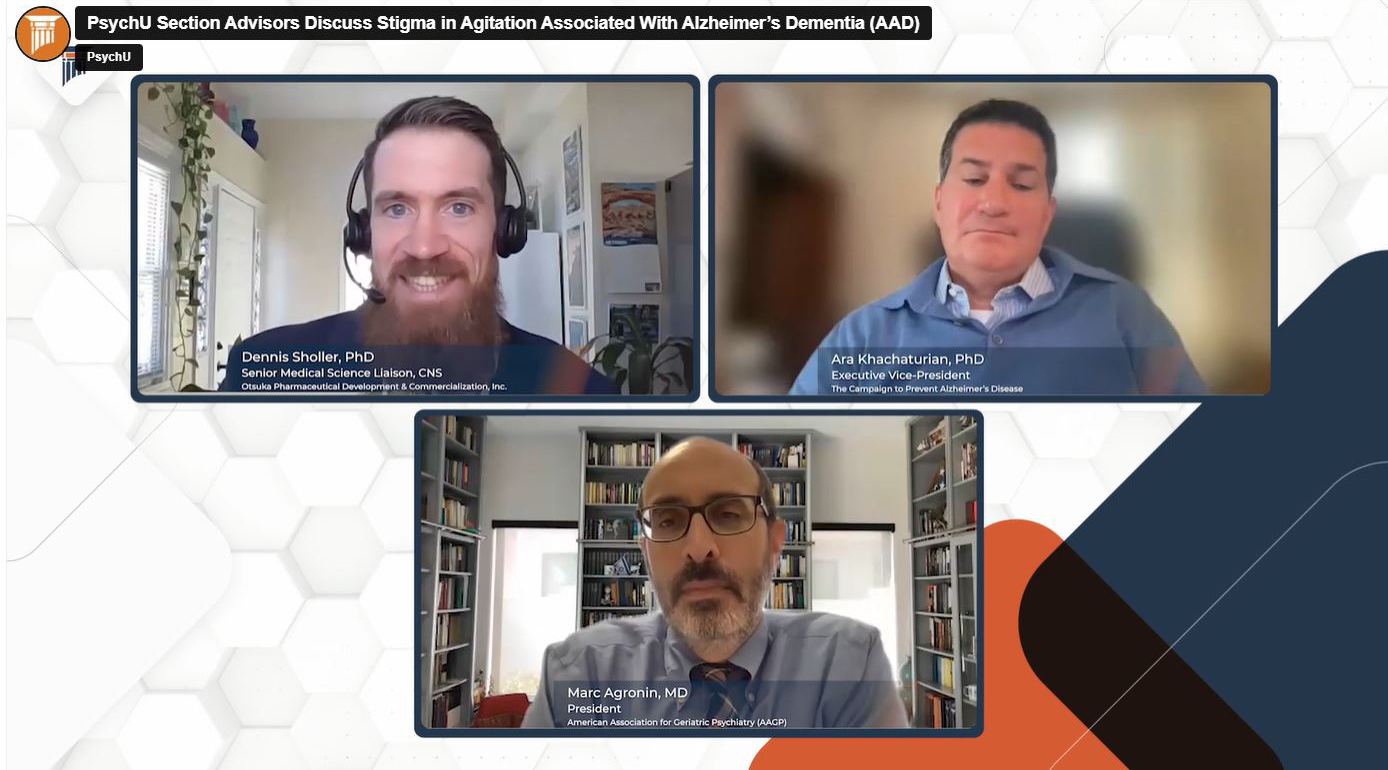
Stigma
Stigma is amorphous: it is structural, embedded in the social fabric; it is expressed as discrimination; and it is internalized in the form of self-blame, deterring some in distress from seeking help. Here in this library find resources for the latest in diagnosis and treatment.

Featured Resources

PsychU Section Advisors Discuss Stigma In Agitation Associated With Alzheimer’s Dementia (AAD)
-
Agitation Associated With Alzheimer’s Dementia (AAD): A Focus On Stigma
InfographicSeptember 8, 2023In March 2023, we launched a survey of PsychU members to assess the stigma associated with AAD. This infographic summarizes…

Combatting Self-Stigma In Persons With Serious Mental Illness (SMI) With Narrative Enhancement & Cognitive Therapy (NECT)
-
Narrative Enhancement & Cognitive Therapy (NECT) – Addressing Self-Stigma
PodcastMay 22, 2024 -
PsychU Section Advisors Discuss Stigma In Agitation Associated With Alzheimer’s Dementia (AAD)
InterviewDecember 14, 2023 -
Agitation Associated With Alzheimer’s Dementia (AAD): A Focus On Stigma
InfographicSeptember 8, 2023
Ask A Question About Stigma
Enter your question in the box below and click “Ask My Question” to submit your inquiry.
You must be logged in to ask a question in this section.
Disclaimer: The information provided by PsychU is intended for your educational benefit only. It is not intended as, nor is it a substitute for medical care or advice or professional diagnosis. Treatment-related questions will not be addressed. Users seeking medical advice should consult with their physician or other healthcare professional.
Otsuka Pharmaceutical Development & Commercialization, Inc. (OPDC) operates in a highly regulated and scrutinized industry. Therefore, we may not be able to address every questions or topic submitted. Topics which may not be addressed may include, but are not limited to questions related to: (1) specific medications, (2) branded items, (3) clinical or treatment advice relating to specific patient conditions. The lack of response to certain questions or comments should not be taken as an agreement with the view posed or an admission of any kind.
REQUEST A PRESENTATION
Request a free educational program for your organization or region today! These customizable PsychU presentations are available both online and in-person, and cover a range of topics including: schizophrenia, major depressive disorder, bipolar disorder, care coordination, quality standards, and more.
Top Requested Presentations
Agitation Associated With Alzheimer’s Dementia Disease State Education
The Importance Of Population Health: A Mental Health Perspective


